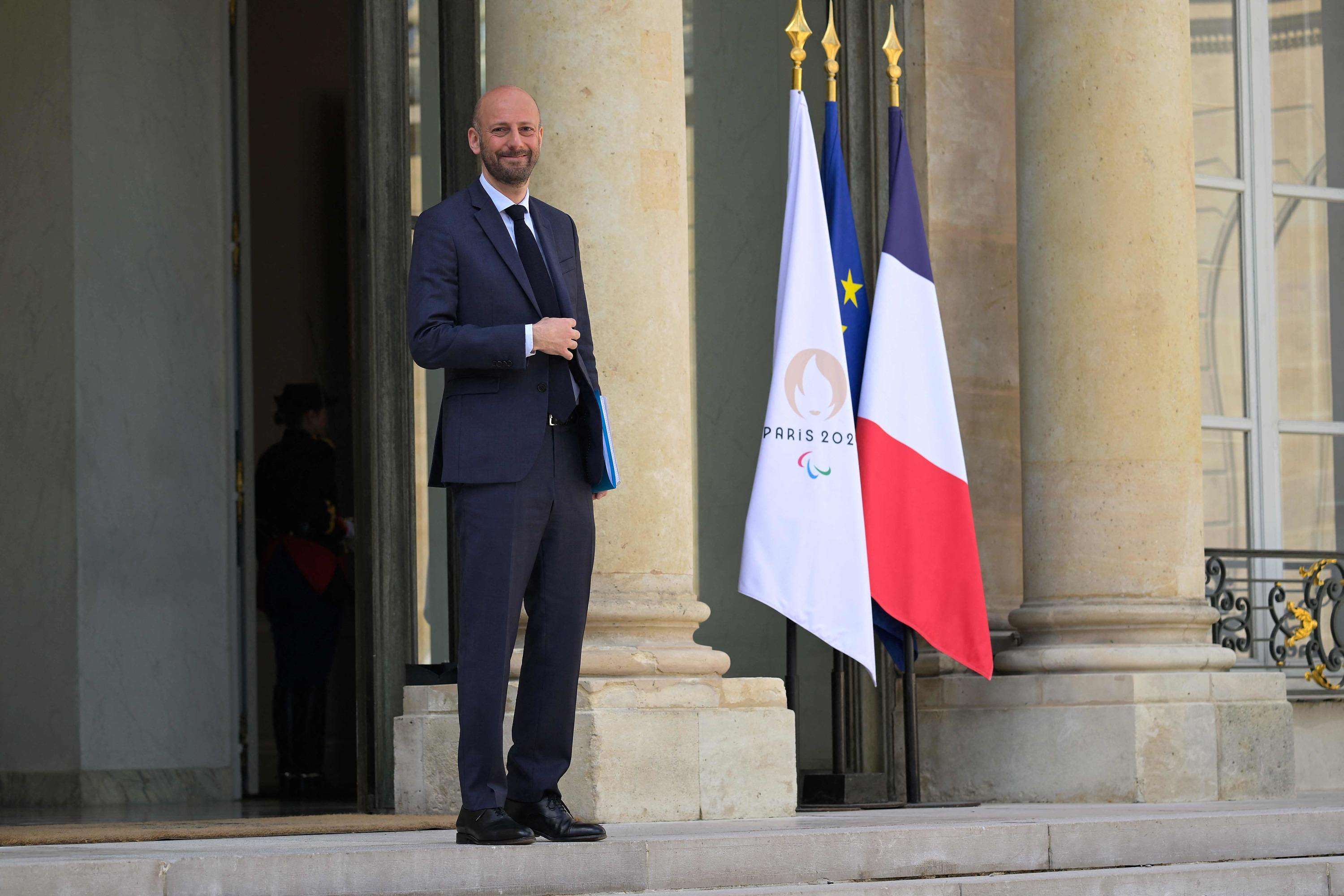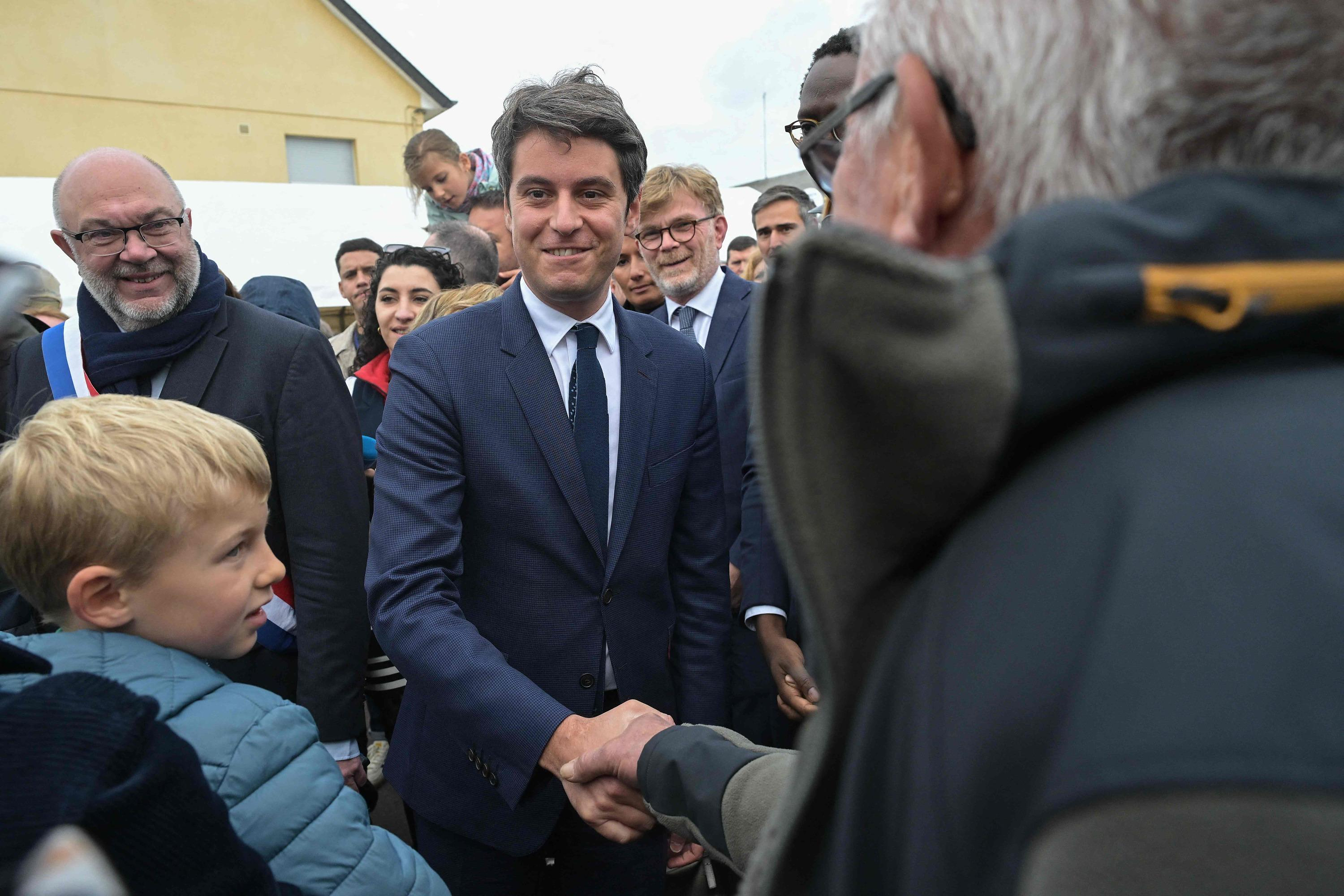For a long time, Japanese cinema thrived on the fame of its heroes. Subsequent generations had a hard time stepping out of the shadows of Kurosawa, Ozu, and Miyazaki. Hirokazu Kore-eda has made it, at least since his Palme d'Or for "Family Ties".
Kore-eda's favorite subject matter is families beyond the norm: "Nobody Knows" is about four children abandoned by their mother, in "Little Sister" three siblings discover they have a half-sister, and "Family Ties" follows and later found out that the members of a blended family are not related at all.
In his new film "Broker", Kore-eda takes this to the extreme: A toddler is dumped in a baby hatch in Korea, kidnapped, and soon several parties lay claim to the child. A conversation with Japan's most important filmmaker about the highly conservative concept of family in his home country, the difficult relationship between Korea and its former colonial power Japan - and how to make a film when you don't understand a word of what the actors are saying.
WORLD: Japanese and Korean films, both are world famous in their own way. But apart from your "Broker" there seems to be almost no co-productions.
Hirokazu Kore-eda: That's right. Unfortunately, one has to say: there is a wall that is not easy to climb. First of all, a formal obstacle: In the case of international co-productions, you have to promise that you want to adhere to certain rights standards. However, Japan has never ratified the treaties on these standards. And then, of course, there is the Japanese-Korean history, which has long been fraught with tension. There are also examples of successful cooperation, such as the jointly held football World Cup twenty years ago. After that, however, the enthusiasm waned considerably, again for political reasons. In terms of culture, however, Korea and Japan have always influenced each other.
WORLD: May I suggest another explanation? Japanese films have been popular in the West since the mid-20th century, since Kurosawa. Korean film did not gain recognition in the West until 50 years later. Is this imbalance also part of the problem?
Kore-eda: There may have been some kind of inferiority complex in South Korea, but that changed radically with the victory of democracy there in the 1990s. Korean cinema has learned a lot: from France about the importance of protecting its industry, from America about the organization of filming, also some from Japan. The film industry in Japan was in a very comfortable position, also thanks to the successes of Kurosawa, Ozu or Mizoguchi. However, over the past twenty years, this has resulted in Japanese films becoming very insular, dealing very much with their own country. This could also be observed at international festivals, where the same handful of Japanese directors were always invited. But that is about to change. There are new Japanese names. In contrast, Korean cinema has conquered the world since the turn of the century. Perhaps now is the time for Japan to learn something from the Korean film industry.
WORLD: Korean and Japanese are very different languages, not related like Italian and Spanish. How did you communicate with your Korean actors?
Kore-eda: I just watched how they played their part. What I saw told me a lot about the feelings they put into it, the rhythm, the tempo. So I understood everything - apart from her words. I went to Korea with the confidence that I would understand all non-verbal aspects. Also, my lead actor, Song Kang-ho, came up to me after each scene and explained every nuance of what was happening in front of the camera.
WORLD: Your film is about baby hatches. I read that there should hardly be any in Japan.
Kore-eda: There is exactly one, in Kumamoto.
WORLD: They are quite common in South Korea.
Kore-eda: One of the reasons might be that they are looked after by churches there, by Christian churches. They then look for parents for the babies and usually pass them on to members of their church, i.e. Christians. Now there are not many Christians in Japan. The only baby hatch is run by a hospital, and that hospital is a Christian hospital. I strongly suspect that there is a connection between baby hatches and faith. In my opinion, we need more baby hatches in Japan.
WORLD: In the West we see all sorts of new types of “family” emerging alongside the father/mother/child family. You, too, talk about new families, but “accidental” ones, as I would call it.
Kore-eda: Let's put it this way: My families go beyond blood ties, people form a community that has no biological connection. Such relationships - for example between homosexuals - are not recognized in Japan, they are the targets of prejudice. Marriages of this kind cannot be officially registered. I hope that will change over time, and that's why I make films about "families" of a different kind.
WORLD: What do you think the state should do to recognize this new type of family?
Kore-eda: The answer is not difficult for me, and it applies to any kind of non-traditional family, not just homosexual or lesbian ones: It's about equal rights for everyone, and equal rights also mean social security. Take my colleague Koji Fukada's film Love Life, which was shown in Venice last year. In it, the grandmother says to her daughter-in-law, who brought a baby into the marriage, "Next time, let me hug our own children." She's not a bad person, but she considers this child not part of her family because there aren't any has blood ties. In one of my films, a grandmother says something similar. This view of things is still widespread in Japan. It must be adapted to the new times. But that takes time.
WORLD: Is this discussion already underway or are you still far ahead of public opinion with your films?
Kore-eda: I try to approach the subject lightly, not dead serious. For me, it's always about celebrating life itself.

 B:SM will break its investment record this year with 62 million euros
B:SM will break its investment record this year with 62 million euros War in Ukraine: when kyiv attacks Russia with inflatable balloons loaded with explosives
War in Ukraine: when kyiv attacks Russia with inflatable balloons loaded with explosives United States: divided on the question of presidential immunity, the Supreme Court offers respite to Trump
United States: divided on the question of presidential immunity, the Supreme Court offers respite to Trump Maurizio Molinari: “the Scurati affair, a European injury”
Maurizio Molinari: “the Scurati affair, a European injury” Beware of the three main sources of poisoning in children
Beware of the three main sources of poisoning in children First three cases of “native” cholera confirmed in Mayotte
First three cases of “native” cholera confirmed in Mayotte Meningitis: compulsory vaccination for babies will be extended in 2025
Meningitis: compulsory vaccination for babies will be extended in 2025 Spain is the country in the European Union with the most overqualified workers for their jobs
Spain is the country in the European Union with the most overqualified workers for their jobs In the United States, a Boeing 767 loses its emergency slide shortly after takeoff
In the United States, a Boeing 767 loses its emergency slide shortly after takeoff The A13 motorway will not reopen on May 1
The A13 motorway will not reopen on May 1 More than 1,500 items for less than 1 euro: the Dutch discounter Action opens a third store in Paris
More than 1,500 items for less than 1 euro: the Dutch discounter Action opens a third store in Paris 100 million euros in loans, water storage, Ecophyto plan… New measures from the executive towards farmers
100 million euros in loans, water storage, Ecophyto plan… New measures from the executive towards farmers New York justice returns 30 works of art looted from Cambodia and Indonesia
New York justice returns 30 works of art looted from Cambodia and Indonesia Les Galons de la BD dedicates War Photographers, a virtuoso album on the Spanish War
Les Galons de la BD dedicates War Photographers, a virtuoso album on the Spanish War Theater: Kevin, or the example of an academic failure
Theater: Kevin, or the example of an academic failure The eye of the INA: Jean Carmet, the thirst for life of a great actor
The eye of the INA: Jean Carmet, the thirst for life of a great actor Skoda Kodiaq 2024: a 'beast' plug-in hybrid SUV
Skoda Kodiaq 2024: a 'beast' plug-in hybrid SUV Tesla launches a new Model Y with 600 km of autonomy at a "more accessible price"
Tesla launches a new Model Y with 600 km of autonomy at a "more accessible price" The 10 best-selling cars in March 2024 in Spain: sales fall due to Easter
The 10 best-selling cars in March 2024 in Spain: sales fall due to Easter A private jet company buys more than 100 flying cars
A private jet company buys more than 100 flying cars This is how housing prices have changed in Spain in the last decade
This is how housing prices have changed in Spain in the last decade The home mortgage firm drops 10% in January and interest soars to 3.46%
The home mortgage firm drops 10% in January and interest soars to 3.46% The jewel of the Rocío de Nagüeles urbanization: a dream villa in Marbella
The jewel of the Rocío de Nagüeles urbanization: a dream villa in Marbella Rental prices grow by 7.3% in February: where does it go up and where does it go down?
Rental prices grow by 7.3% in February: where does it go up and where does it go down? Even on a mission for NATO, the Charles-de-Gaulle remains under French control, Lecornu responds to Mélenchon
Even on a mission for NATO, the Charles-de-Gaulle remains under French control, Lecornu responds to Mélenchon “Deadly Europe”, “economic decline”, immigration… What to remember from Emmanuel Macron’s speech at the Sorbonne
“Deadly Europe”, “economic decline”, immigration… What to remember from Emmanuel Macron’s speech at the Sorbonne Sale of Biogaran: The Republicans write to Emmanuel Macron
Sale of Biogaran: The Republicans write to Emmanuel Macron Europeans: “All those who claim that we don’t need Europe are liars”, criticizes Bayrou
Europeans: “All those who claim that we don’t need Europe are liars”, criticizes Bayrou These French cities that will boycott the World Cup in Qatar
These French cities that will boycott the World Cup in Qatar Tennis: “I need to regain confidence in my body,” explains Rafael Nadal
Tennis: “I need to regain confidence in my body,” explains Rafael Nadal NBA: Orlando returns to level with Cleveland in the 1st round of the play-offs
NBA: Orlando returns to level with Cleveland in the 1st round of the play-offs Tennis: Iga Swiatek in the round of 16 at full speed
Tennis: Iga Swiatek in the round of 16 at full speed “It was exceptional here in Chaban-Delmas”: Escudero looks back on the excitement around France-England
“It was exceptional here in Chaban-Delmas”: Escudero looks back on the excitement around France-England

















